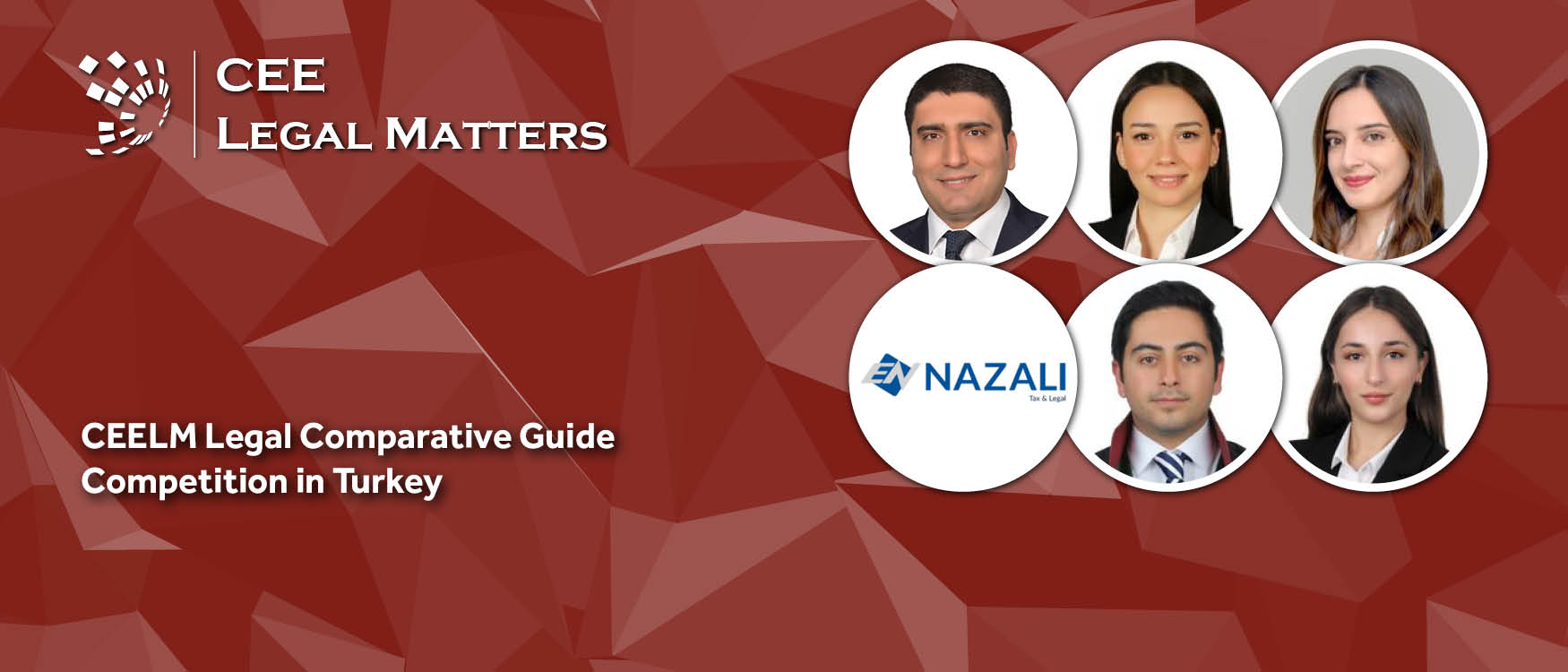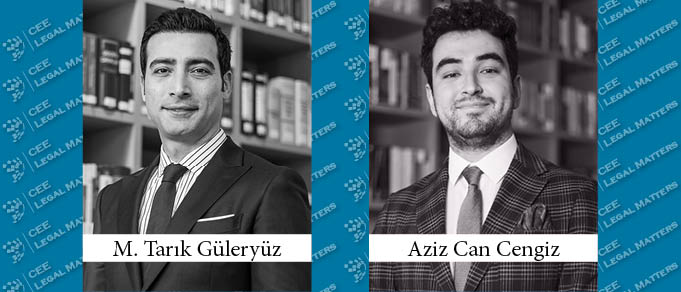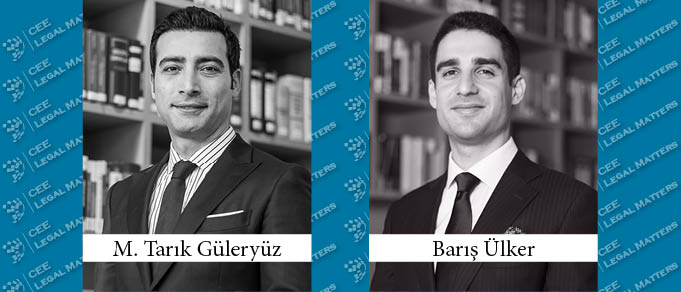Contributed by Nazali Tax & Legal.
Turkish Rules on Mandatory Tender Offer Have Been Amended Substantially
The new Communiqué amending the Capital Market Board’s [“CMB”] Communiqué on Tender Offers No. II-26.1 [“Amendment Communiqué”] entered into force upon its publication in the Official Gazette dated October 16, 2021.
Employee Stock Option Plans under Turkish Law
Over the last decade, granting employees stock option rights for acquiring shares in the employer company has become a growing trend among companies operating in the technology sector, particularly in start-up companies. In this respect, companies favour "Employee Stock Option Plans" enabling employees to acquire a certain amount of shares in the company and conclude "Stock Option Agreements" with the employees for this purpose. In this article, the concept of stock options and various stock option plans will be discussed along with their implementation under Turkish law and in other jurisdictions.
Turkey: Reorientation of Oil and Gas Sector Upstream Investments
All countries have had to deal with the intensifying effects of climate change in recent years. As a direct response, we are in the process of moving toward a low-carbon future. The Paris Agreement and the EU’s Green Deal have already urged all sectors to take measures to reduce carbon emission levels, and the energy transition movement is rapidly growing. COVID-19 has also hastened this global movement.
A New Era in Environment and Climate Policies: Turkey is Now a Party to the Paris Climate Agreement
The Turkish Government, in its statement at the United Nations General Assembly, had given signals beforehand that it would submit the Paris Climate Agreement [“Paris Agreement” or “Agreement”], for parliamentary approval which it signed on April 22, 2016. Following his statement, the Agreement entered into force with the Law on Approval of the Paris Agreement and the Presidential Decision, both published on the same day, on 7.10.2021 in the Official Gazette. Please see our previous article about the content and purpose of the Paris Agreement.
Turkish Law of Inheritance Series II.: Will, Testamentary Contract and Estate Planning
Distribution of assets sometimes leads to disputes between heirs and cause undesirable consequences. In this respect, many people prefer to decide how their estate will be distributed by making testamentary dispositions while they are still alive. Hence, in order to eliminate possible conflicts between heirs or for other reasons, individuals may choose to plan their estate prior to their death, based on personal wishes. Today, more people than ever prioritize estate planning.
Deal 5: Delivery Hero Head of M&A Legal (LATAM & MENA) Deniz Ozkan Ergun on Acquisition of Marketyo
On August 23, 2021, CEE Legal Matters reported that GKC Partners had advised Yemeksepeti – the Turkish subsidiary of Delivery Hero, on its acquisition of Turkish online shopping platform Marketyo Bilisim Teknoloji A.S. CEE In-House Matters spoke with Deniz Ozkan Ergun, Senior Manager, Head of M&A Legal (LATAM & MENA) of Delivery Hero to learn more about the acquisition.
Deal 5: 500 Startups General Partner Enis Hulli on Investment in Ango AI
On August 11, 2021, CEE Legal Matters reported that BTS & Partners had advised 500 Startups and Qnbeyond Ventures on its investment in Ango AI. CEE In-House Matters spoke with Enis Hulli, General Partner at 500 Startups, to learn more about the deal.
Turkey: Share Transfer Restriction Options
Transfer of shares to a third party may cause harm to the existing shareholders and create undesired consequences for them. For example, share transfer may result in the entry of an undesired third party into the entity as a shareholder. Therefore, shareholders may require strict measures to be taken for protecting the corporate structure of the entity, preventing the entry of undesired third party to the entity, preventing deadlock when reaching a decision, preventing the sale of company’s shares to its competitors, protecting the rights of the minority shareholders, etc.
Turkey’s Personal Data Authority Published its Announcement on Processing of PCR Test Results and Vaccination Information in Combatting Corona Virus
The Personal Data Protection Authority [“Authority”] has published a public announcement on September 28, 2021, with respect to the collection and processing of PCR test results and information regarding vaccination status being shared with third parties to mitigate potential health risks during pandemic.
Turkish Law of Inheritance Series I.: Right of Inheritance, Statutory Heirs, Testamentary Heirs and Beneficiaries
Following the death of a person, the fate of the wealth they created throughout their life, and how to ensure the continuity of this value is a common concern shared by many people. In Turkish law, these matters are regulated in the "Inheritance Law" book, which is the third book of the Turkish Civil Code No. 4721. In the first of our series of articles, in which we will examine the law of inheritance through various topics of interest, we will discuss the concept of inheritance and heirdom. In following articles, we will touch on the frequently asked questions regarding the law of inheritance.
Ekin Inal Joins IFC as Legal Counsel in Turkey
Former Inal Unver Attorney Partnership Partner Ekin Inal has joined the International Finance Corporation as a Legal Counsel in Turkey.
Enforceability of Non-compete Agreements with Employees under Turkish Law
Employees may have access to important and confidential information related to the employer, including the company’s operations, clientele and trade secrets. Use of such information without employer’s knowledge may harm the legitimate interests of the employer. In this respect, an employee should not compete with his/her employer according to the duty of fidelity during the term of the employment agreement. As this is a statutory duty imposed on the employee, there is no need for such non-compete obligation to be explicitly set out in the employment agreement.
Turkish Constitutional Court Ruled that the Decision of Non-Jurisdiction Adopted After 7 Years Based on the Arbitration Clause Does Not Violate Right to Property
In its decision dated June 8, 2021, and numbered 2018/5832, the Turkish Constitutional Court [the “Court”] ruled that the dismissal of the case in terms of non-jurisdiction nearly after seven years on the ground of the arbitration clause does not violate the right to property.
Former Turkish Competition Authority Chief Legal Counsel Join ELIG
Former Turkish Competition Authority Chief Legal Counsel Harun Gunduz has moved into private practice by joining ELIG Gurkaynak Attorneys-at-Law.
WhatsApp Has Been Slapped with Record Fine by Turkey’s Data Protection Authority
As known, several months ago, Whatsapp Inc. had informed its users about the update on the terms of use and privacy policy and announced that “the users must consent to their WhatsApp data being shared with Facebook companies in order to continue using WhatsApp, otherwise as of February 8, 2021 they will not be able to use WhatsApp”. This update stirred a huge debate among users, and millions stopped using the app. That being said, on January 12, 2021, the Personal Data Protection Authority [“Authority”] initiated an ex officio investigation as to whether WhatsApp infringed Article 15 of Turkish Personal Data Protection Law No. 6698 [“Law No.6698”].
Debt Collection Series-4: Collection of Debts from Bankrupt Entities in Turkey
In the ordinary course of commercial life, “bankruptcy” may be inevitable for financially distressed companies. In such case, the question arises with respect to the status of receivables from the bankrupt entity and how they will be collected.
Coca-Cola Turkey GC Ece Sarica Appointed to Regional Role in UK
Former Coca-Cola Operations Legal Counsel and Local Ethics Officer for the Turkey Region Ece Sarica has been appointed to IP Counsel, Europe at Coca-Cola GB in London.






































